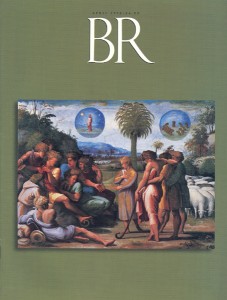Most good Bible teachers have a secret satchel of especially enticing insights that liven up a class and engage students. We want to present one of these little gems in Insight in each issue of BR. We hope this new department will surprise, teach and entertain—and thereby compel your interest. We invite submissions, from scholars and lay readers alike.
In at least one instance in the Hebrew Bible, God is referred to as feminine.
This is not apparent in English translations because “you” is neither masculine nor feminine. However, many other languages, including Hebrew, use masculine and feminine forms of “you.”
The feminine reference to God occurs in Numbers 11:15. The children of Israel are in the desert. Despite their rescue from Egyptian bondage, they are complaining bitterly. In Egypt, they recall, they ate fish and cucumbers. They had melons and onions and garlic and leeks. Here they have only manna. Moses himself is distressed at the burden of having to lead the people: “I cannot carry all this people by myself,” he tells the Lord. “It is too much for me.”
Then he asks God to kill him so that he can end his wretchedness. Here is the crucial passage:
“If this is the way you [feminine!] are going to treat me, put me to death at once.”
At that point, God tells Moses to appoint 70 elders, who would eventually share the burden of administration with him.
Is Moses calling on the Lord’s feminine nature by addressing him with the feminine “you”? This certainly seems to be a possibility.
Already a library member? Log in here.
Institution user? Log in with your IP address.

